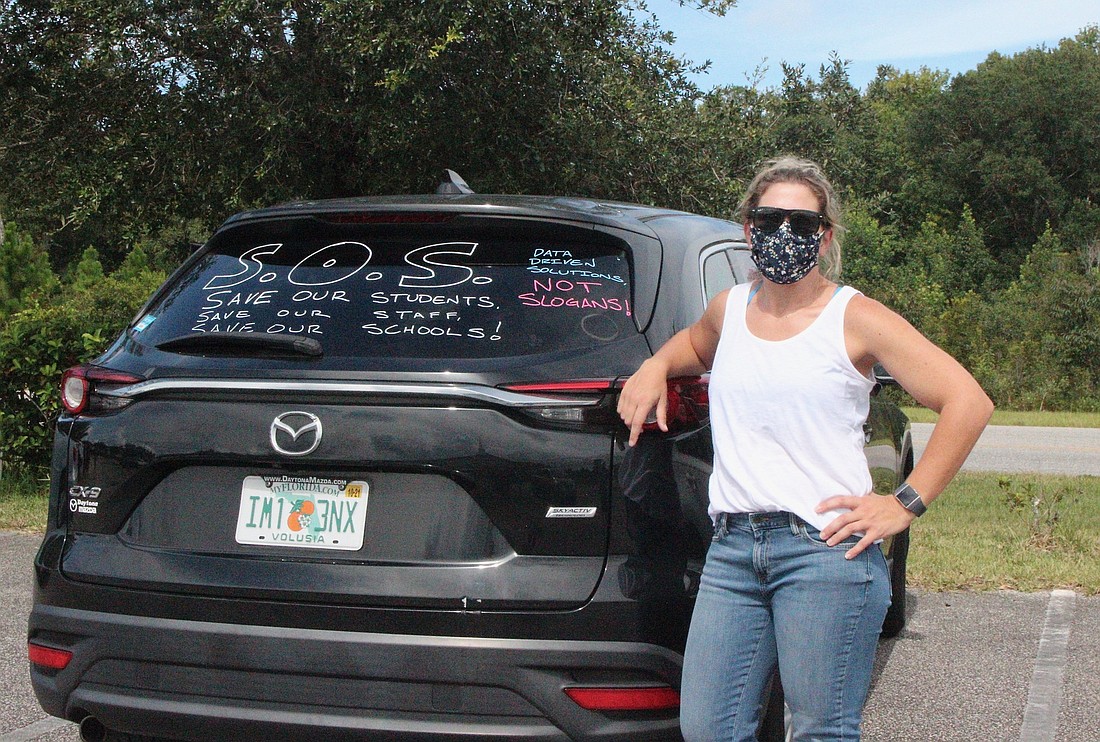- December 15, 2025

Flagler Schools is proposing to delay the start of the school year by 10 school days, to Aug. 24.
The proposed delay isn't an attempt to wait out the current COVID-19 surge as much as to give the district a bit more time to implement safety procedures and protocols. Some of those involve rearrangements of things like bus schedules, HVAC handling protocols, and school clinic procedures.
"My colleagues want to be in school. We want to do our jobs, but we want to be able to do them safely."
— KIMBERLY KEEN, special educator, urging the district to wait to reopen
Neighboring St. Johns County, Volusia County and Putnam County have already decided to delay the start of the school year.
"I will be honest and share with you: There is no perfect model," Superintendent Cathy Mittelstadt said at a July 21 School Board meeting. "We are going to strive to be as perfect as we can. And along the way we're going to be transparent, we're going to continue to communicate and make adjustments as we need to."
Mittelstadt proposed the delay during a July 21 School Board workshop.
Board members expressed support, and the board will meet at 3 p.m. July 28 to consider the details of adjusting the academic calendar.
Mittelstadt's remarks at the board meeting followed a "car march" by several dozen school district staff members and supporters who circled the Government Services Building complex in vehicles decorated with slogans like "SOS: Save Our Students" and "COVID-19 is not 'just the flu.'"
The marchers, who organized on Facebook, believe the district should wait to open schools until there have been at least 14 consecutive days with no new local cases of COVID-19.
Christine Patterson, an educational consultant and former local teacher, organized the car march.
The risks facing teachers, she said, are different from those facing other essential workers.
"It's the nature of the classroom itself," she said. "You are in this small room with a lot of other people, for a very long time."
Medical environments, she said, tend to have infection control procedures that couldn't feasibly be duplicated in the classroom, while retail environments expose staff members to a lot of people, but generally for only minutes each.
Then there are the pedagogical issues: The district has added a remote instruction option that would let students follow along with with their classes via a webcam from home, but that tasks teachers with teaching two audiences at once: the kids sitting in the classroom, and the ones on the other side of a screen.
Local resident Kendall Clark joined the car march because her son is a teacher. Unlike people who work in grocery stores, she said, teachers would have sustained, close contact with others for long periods of time — not 15 minutes here and there with adults who mostly understand social distancing, but hours with children who often don't.
Many of the two dozen community member comments that were read into the record at the evening board meeting noted such complications.
"My children are not guinea pigs. ... No child can keep their hands to themselves and not touch things around them, especially elementary aged children," wrote Nicole Anderson.
Kimberly Keen, a special educator, wrote that she has an auto-immune disorder and gets sick each year as it is.
"I’m exceptionally susceptible to upper-respiratory infections and have been sick each year from October to February, and have accepted it as a fact of life being a teacher," she wrote. "... But now, I’m faced with a choice. Go back to work doing my job with the students that I love and risk being exposed to COVID-19, or quit."
Keen wrote that many of her colleagues feared that stepping forward with their concerns would get them labeled as trouble makers.
"I understand the un-winnable situation that this board has been placed in, but I’m begging for the following consideration: Starting the school year virtually and keeping our campuses closed until there are 14 days with no new cases in our community," she wrote. "My colleagues — self-sacrificing individuals, hardworking teachers, and human beings with families — they have described this situation as making them sick to their stomachs and impacting their physical and mental health. The feelings that they’ve expressed are as follows: insulted, betrayed, undervalued and disposable. My colleagues want to be in school. We want to do our jobs, but we want to be able to do them safely."
Board member Colleen Conklin said that parents who can keep their children home should seriously consider doing so: The fewer students attending brick-and-mortar campuses, the easier it will be for schools to enforce social distancing.
Board member Andy Dance said that close to 40% of district students' parents have indicated that they intend to opt for online or remote learning options this fall.
"This is very serious business, and the district is working hard to ensure everybody’s safety," Dance said. "... If parents have that option to remotely learn, then I think that is an appropriate place for them to take their children if they have any issues at all with coming back to campus, because there are parents that absolutely need to have their students on our campus."